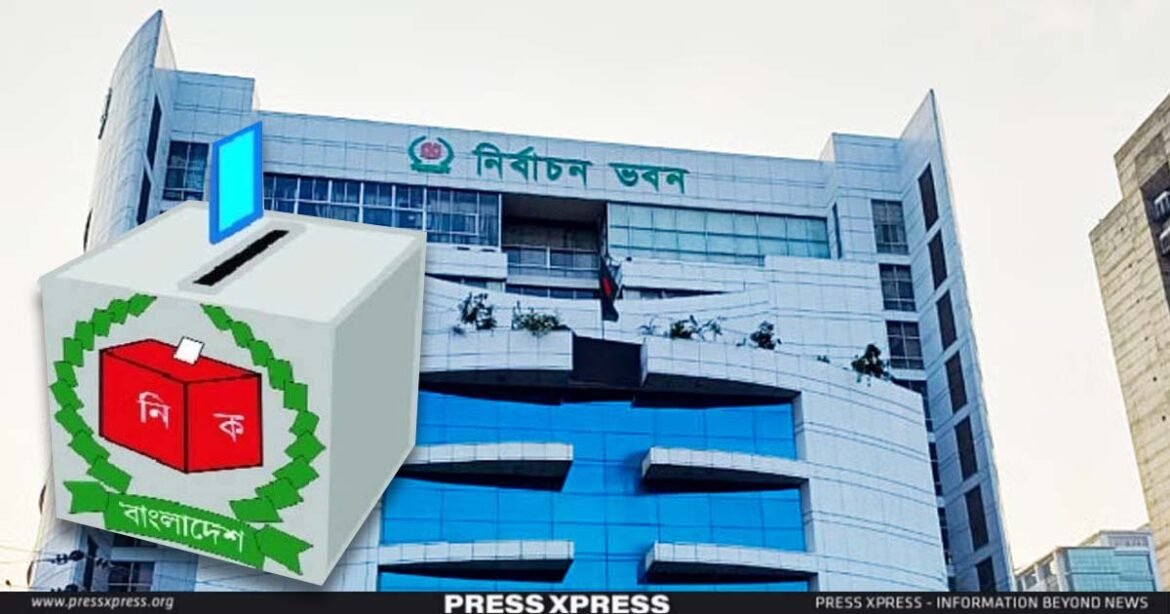Amendments to election conduct rules aim to enhance transparency and participation, while increased deposit requirements signify a more rigorous candidacy process
The Upazila Parishad Election plays a significant role in decentralized governance and local democracy in Bangladesh, allowing communities to have a voice in decision-making processes and facilitating the implementation of development initiatives tailored to local needs and priorities as the upazila stands as a fundamental component of local government administration.
You can also read: What Keeps Bangladesh Watching India’s Elections?
Over the years, Bangladesh has seen 5 Upazila elections. The forthcoming 6th Upazila Parishad Elections in Bangladesh, scheduled to commence on May 8, 2024, mark a pivotal moment in the nation’s democratic journey.
History of Upazila Parishad Election
The Upazila Parishad (UZP) has its roots in the recommendations of the Committee for Administrative Reform and Reorganization (CARR) during General Ershad’s military rule (1982-90). It evolved from the Thana Development and Coordination Council (TDCC), established under the Basic Democracies Order, 1959, influenced by Akhter Hameed Khan’s Comilla Experiment. Unlike TDCC, UZP introduced directly elected chairmen and reduced administrative dominance.
The constitutional provision for local government remained unimplemented until 1984 when the Administrative and Services Reorganization Committee’s (ASRC) recommendations were approved, leading to the establishment of UZPs by 1986. The UZP law provided for directly elected chairmen and involved elected union parishad chairmen as members. Initially opposed by political parties, UZP faced challenges from various alliances but was implemented by Ershad’s regime.
After Ershad’s resignation in 1991, UZP was abolished, but legal challenges ensued. The caretaker government of 2007 recommended excluding Jatiya Sangsad members from UZP roles and proposed a permanent Local Government Commission.
The UZP law was established in 1982, with elections held in 1985 and 1990. Though the system was abolished in 1991 after General Ershad’s government resigned, but revived in 2009 under the Awami League Govt.
What Is The Significance of Upazila Parishad?
The Upazila Parishad plays a pivotal role in Bangladesh’s administrative structure, serving as the grassroots level of governance. With its establishment, local communities gain a platform to voice their needs and participate in decision-making processes. This decentralized approach fosters effective management of resources, ensures equitable development, and promotes local empowerment. Upazila Parishads serve as bridges between the central government and rural areas, facilitating the implementation of policies tailored to local requirements.
Moreover, they enhance transparency and accountability by bringing governance closer to the people, thereby reducing bureaucracy and corruption. Through initiatives such as infrastructure development, healthcare provision, and educational programs, Upazila Parishads contribute significantly to socio-economic progress, particularly in rural regions where they play a crucial role in alleviating poverty and improving living standards.
Thus, their importance lies not only in administrative functions but also in promoting democratic values and inclusive development at the grassroots level.
Upazila Parishad Election Schedule 2024
The Election Commission finalized the schedule during their meeting on Thursday (March 21, 2024), which includes the upazila parishad election taking place in four phases this time.
As per the announced schedule, the initial stage of the upazila parishad election is slated for May 8th, with the deadline for submitting nomination papers set for April 15th. The scrutiny of nomination papers is scheduled for April 17th.
Simultaneously, the last date for withdrawal of nomination papers is April 22nd, with symbol allocation planned for April 23rd.
The subsequent phases of voting are slated for May 23rd, May 29th, and June 5th, respectively.

Among the 152 upazilas, voting will utilize EVMs in 22 upazilas spanning nine districts, namely Cox’s Bazar, Shariatpur, Chandpur, Jamalpur, Pabna, Sirajganj, Jashore, Pirojpur, and Manikganj. In this initial phase, voting will occur in 22 upazilas across these districts.
Upazila Election Conduct Amendments
The Upazila Election Conduct Rules 2024 were issued by the Election Commission on Tuesday (March 21, 2024), incorporating amendments in specific areas. As per the updated regulations, the election campaign will commence on the day of symbol allocation, and all candidates must submit their nomination papers through online channels. The ruling Awami League has declared their decision not to allocate their party symbol to any candidate in the forthcoming local government elections.
Contrarily, the participation of the BNP, which abstained from the parliamentary election, seems improbable in the upcoming local government election as a party. Consequently, the upazila council election is expected to be primarily contested among independent candidates.
In line with the revised election conduct rules, independent candidates are exempted from providing a list of supporters. Additionally, they are permitted to utilize colored posters for campaigning this year and will have extended campaign durations.
However, the recent amendments have led to an increase in the deposit amount required for candidates. Prospective candidates must now deposit Tk1,00,000 to contest for the chairman position and Tk75,000 for the vice chairman position. Earlier, the deposit for both positions was Tk10,000.
Following the revised regulations, a candidate is now required to obtain 15 percent of the overall votes cast to retain the security deposit, which previously stood at 12.5 percent.
Upazila Parishad Election (2019)
The 5th Upazila Parishad Election in Bangladesh took place in 2019, spanning five phases held on March 10, 18, 24, and 31, as well as June 18, in 463 upazila parishads out of 491.
Awami League nominated candidates have been elected to the post of chairman in more than two-thirds of the upazilas. The rest are independent candidates.
Phase-wise results of this election are given below:

In conclusion, the Election Commission’s announcement of the upazila council election schedule has stirred anticipation nationwide. With 152 upazilas set to cast their votes on May 8th, the electoral process promises significant engagement. Amendments to election conduct rules aim to enhance transparency and participation, while increased deposit requirements signify a more rigorous candidacy process. The upcoming election builds upon the successes of previous ones, demonstrating Bangladesh’s dedication to democratic governance and grassroots empowerment.


